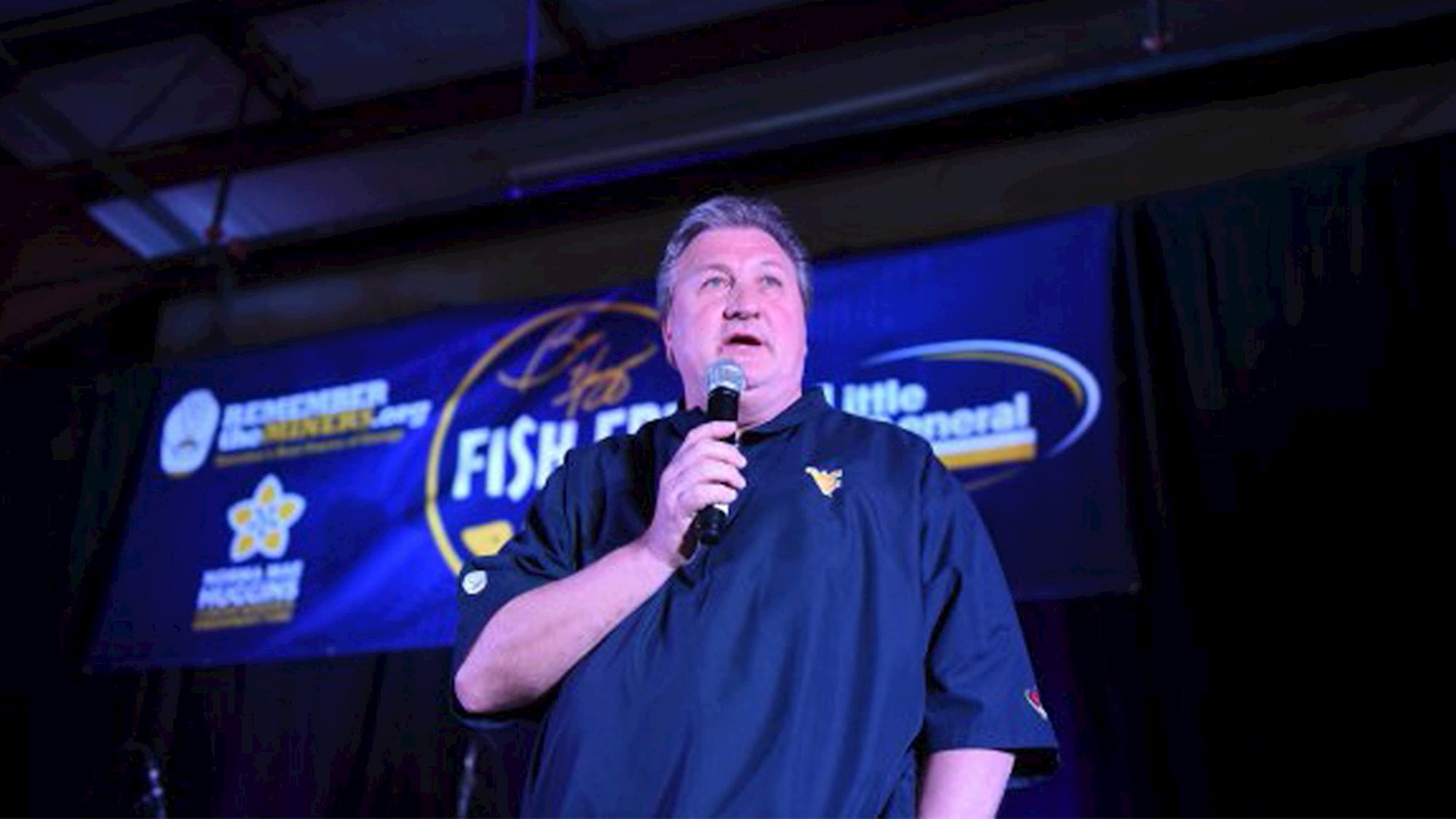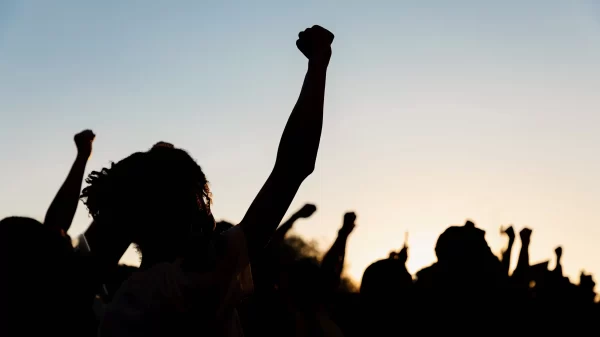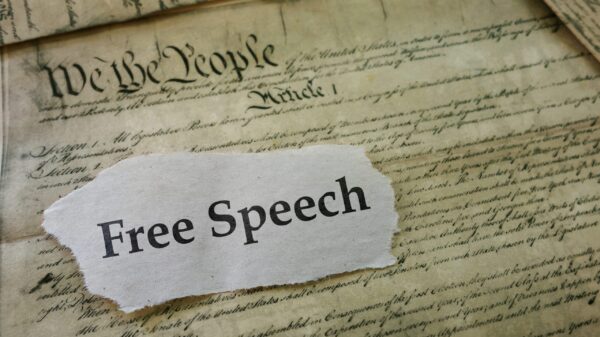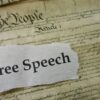If Bob Huggins — the coach of more than 900 wins, 24 NCAA tournament appearances and a 2022 Naismith Memorial Basketball Hall of Fame induction — currently worked at a private college rather than West Virginia University, he might already be cleaning out his office.
But his status at a public institution and subsequent constitutional rights complicate things to at least some small degree, even as many groups are calling for his dismissal following Huggins’ use of a homophobic slur during a Monday interview. After WVU administrators debated his fate for two days, the university decided to restructure his contract, reduce his pay by $1 million and suspend him for the first three games of next season — all along with a promise that similar language in the future will result in “immediate termination.”
As a starting point, when public universities act as arbiters of speech and ideas, they are bound by the terms of the First Amendment, whether that’s in dealing with students or employees. That’s why the University of Alabama-Huntsville had to change a policy on “speech zones” when it was sued by a student and why Auburn had to pay one of its professors more than $600,000 after he successfully argued that the university punished him for speaking out on possible corruption. Nothing in a public university’s student code of conduct or employee agreement can completely trump the core speech freedom contained in the First Amendment.
Huggins wouldn’t be the first coach to be axed for an off-the-court issue — just ask Bobby Knight and Rick Pitino. But if he was to lose his job for his comments, it would be a marked departure from those peers; Knight’s tenure at Indiana and Pitino’s run at Louisville were both ended by actions rather than what can be called the “pure speech” of Huggins’ interview — speech that, while undoubtedly offensive, is fully protected by the Constitution.
And while the question of whether the university has First Amendment concerns or the allure of more arena banners to explain its underwhelming punishment is unclear, it’s at least worth considering Huggins’ free speech rights.
Yet in surveying the relevant case law, it seems likely that Huggins would be out of luck if he tried to cling to the Constitution in hopes of preserving his employment, wringing money damages out of WVU or even fighting the disciplinary measures the university has heaped upon him.
While Huggins and any other public employee can claim free speech rights in the context of their employment, it doesn’t mean those rights are unbounded. Just any private workplace is free to make employment decisions that best serve stakeholders (within the constraints of contract and similarly applicable law, of course), state actors must properly balance the needs of serving the public against whatever possible speech rights an employee might be claiming. The precise mechanism of balancing those two competing interests falls to the line of Supreme Court cases that began with 1968’s Pickering vs. Board of Education and tweaked most recently in 2006 with Garcetti v. Ceballos. The Court’s case law distills down to five factors, summarized in 2018 by a 10th Circuit court as:
- Whether the speech was made pursuant to an employee’s official duties;
- Whether the speech was on a matter of public concern;
- Whether the government’s interests, as employer, in promoting the efficiency of the public service are sufficient to outweigh the plaintiff’s free speech interests;
- Whether the protected speech was a motivating factor in the adverse employment action; and
- Whether the defendant would have reached the same employment decision in the absence of the protected conduct.
The first three factors are questions of law, while the last two are questions of fact; in essence, the plaintiff might be able to show a protected speech claim yet still lose if the government can prove to a fact finder that the speech didn’t play a role in the termination or workplace discipline.
Under the first factor, a government employee is entitled to more speech when they are not speaking as a part of their job; as the Supreme Court concluded in Garcetti, “[W]hen public employees make statements pursuant to their official duties, the employees are not speaking as citizens for First Amendment purposes, and the Constitution does not insulate their communications from employer discipline.”
The key question, then, is what exactly was Huggins’ appearance on Cincinnati radio personality Bill Cunningham’s show? Cunningham, who has a long history of politically provocative remarks, is not really a sports commentator, and the two appear to be friends (if not at the very least associates) dating back to Huggins’ 16 years at the University of Cincinnati — a tenure that ended in 2005 with a goodbye bash organized by Cunningham. However, this type of media appearance is the sort of thing that big time NCAA coaches are expected to make routinely, so if this had to be placed on a spectrum — between using a slur on the court or on a recruiting visit and saying the same in a private social gathering — it probably falls somewhere in the nebulous middle, primarily because of the nature of Cunningham’s show and their relationship.
The second factor’s “public concern” analysis typically turns on whether an employee was truly speaking out to alert the public to wrongdoing or whether they were simply externalizing a workplace grievance. That framing doesn’t work in the slightest here, where Huggins, a sports celebrity, was apparently on Cunningham’s show to talk only about his old UC days. There’s an argument that anything Huggins might say is of public concern, but that doesn’t seem particularly strong given the cases in this area. Yet that line of thinking might be stronger if Huggins had engaged in speech regarding an ongoing public controversy — an avenue both he and Cunningham could have explored had the two ventured down Cunningham’s transphobic remark also contained in the clip that has been widely circulating since Monday.
The best approach to the first three factors in Huggins’ situation might be the one taken by the Sixth Circuit in Bennett v. Metropolitan Government of Nashville, a 2020 case in which the court upheld the dismissal of an emergency dispatcher who used a racial slur in a Facebook post about the 2016 presidential election. In that case, the court concluded that, while the dispatcher’s post was on a matter of public concern, the racial slur contained in it need not receive the same level of protection, which resulted in a lower threshold for the third factor’s workplace disruption.
Higgins might be able to argue that he was not appearing on Monday’s show as a basketball coach in the employment of WVU. He might likewise have some colorable claim that his recollections of an indecent stunt by Zavier University fans might also be of public concern. But it’s his use of a homophobic slur that’s at issue, and that speech — while constitutionally protected — does not merit the same level of concern as discussion on politics or government malfeasance.
First Amendment rights exist only to the point at which an individual or organization is willing to take legal action to defend them. In this hypothetical case, Huggins is probably better off taking his lumps in the court of public opinion rather than seeking redress under the law.
And his time is better spent on working to become a decent person.























































